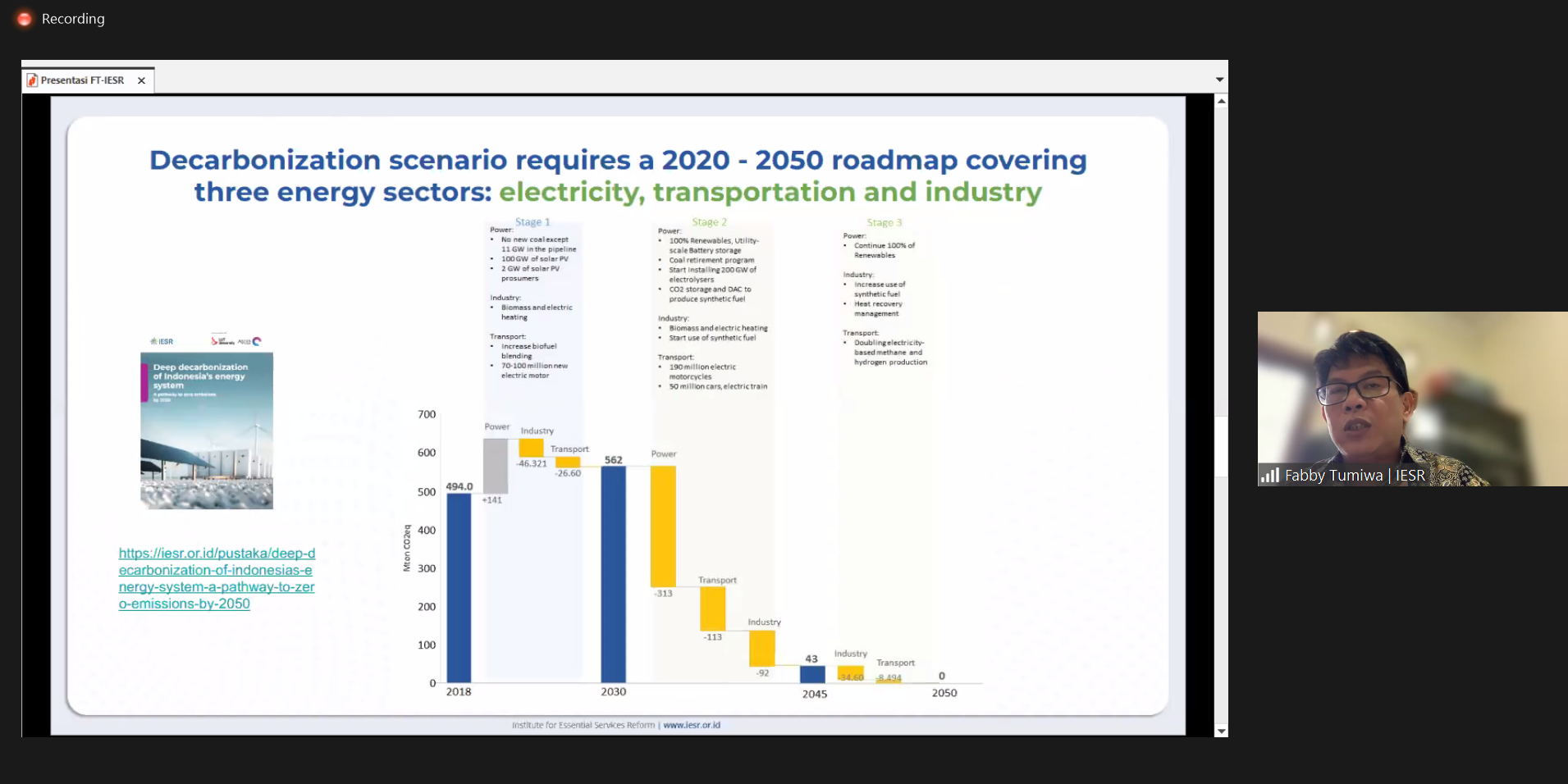Jakarta, 19 May 2022 Renewable energy is seen as a quick win to secure a global temperature rise of no more than 2 degrees Celsius, according to the Paris Agreement. Indonesia whose emission reduction targets 29% on self-effort and 41% by international assistance by 2030 is actively seeking a more effective way to secure its target. The remaining time to achieve the target is only around 8 years. Yayan Mulyana from the Foreign Policy Strategy Agency of the Ministry of Foreign Affairs Indonesia admitted that it’s hard but Indonesia is optimistic to achieve it.
Gandi Sulistiyanto, Indonesian Ambassador for South Korea, during his keynote speech in the webinar “Enhancing Investments from South Korea for Renewable Energy Development in Indonesia” hosted by the Ministry of Foreign Affairs Republic Indonesia on Thursday, 19 May 2022, said that both countries develop momentum and mutual interest in renewable energy investment.
“Indonesia embassy in Seoul ready to support the Government’s target to have 23% of renewables in 2025. Meanwhile, South Korea aims to have 35% renewable shares in 2040. Both countries are in intense communications to develop EV battery manufacturers to support EV ecosystems that start penetrating the Indonesia market,” Gandhi said.
He added that in accordance with sustainability and human development, his office focuses on four sectors i.e: human development, science and technology, sustainable finance development, and national energy security.
Fabby Tumiwa, the Executive Director of IESR said that energy transformation is the heart of climate change mitigation.
“Energy consumption in Indonesia is projected to increase 7-8 times than the current rate as a consequence of massive electrification of transportation and other home appliances, we have a double consequence of the situation i.e to replace the current fossil energy with renewable and to fulfill the growing demand at the same time,” he said.
Indonesia’s LTS LCCR document projects that there will be rapid emission reduction after 2030 if power generation is supplied by renewable 43% by 2050. It tries to be translated into the current PLN’s RUPTL that shows the government’s eagerness to deploy more renewable energy in the power sector in Indonesia. A study has shown that Indonesia is technically feasible and economically viable to achieve zero emissions by 2050 using 100% renewable energy.
“IESR Deep decarbonization of Indonesia’s energy system study presents a step by step roadmap to achieve net zero in 2050 covering transportation, power sector, and industry,” Fabby added.
Solar, whose residential potential – reaches up to 655 GWp will be the backbone of the renewable-based energy system.
Minho Kim, Komipo Korea State-Owned Company said that as a businessman, his company sees Indonesia as a potential market as well as a partner for renewable energy considering the abundant resources available.
“Komipo already has operations in Indonesia for geothermal and hydropower projects. Later on, we plan to develop green hydrogen/ammonia as well,” Minho said.
Minho added that the emergence of the carbon market makes renewables a new hot commodity because it is needed. “As more companies join the RE 100 initiatives, the demand for clean energy is higher, therefore providing clean energy is no longer an option but a must as it is what is needed by the industry and demanded by customers,” he concluded.

